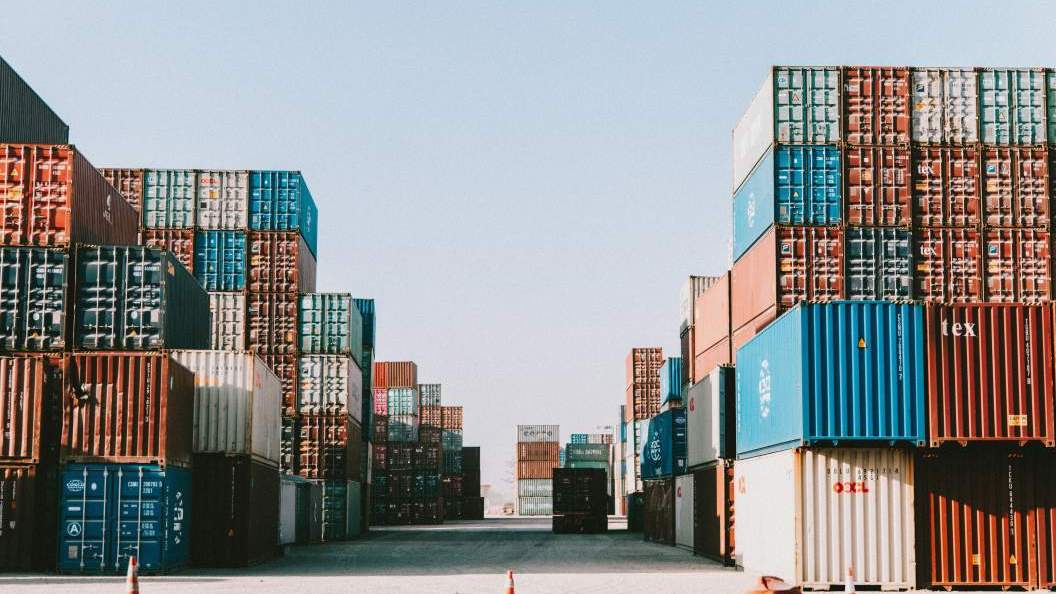Table of contents
- What is the Freight Forwarding Industry?
- What is a Freight Forwarder?
- Freight Forwarders vs NVOCCs
- What Does a Freight Forwarder Do?
- The Value of a Freight Forwarder
- AEO Status - Certified Freight Forwarders
- Common Mistakes
- When Should I use a Freight Forwarder?
- What are the Advantages of Using a Freight Forwarder?
What is the Freight Forwarding Industry?
Freight forwarding is a service industry responsible for organising and overseeing the worldwide movement (or shipping) of goods (or cargo) across international and domestic freight routes from one location to another.
What is a Freight Forwarder?
Freight forwarders are the intermediaries which act the mediator on behalf of importers and exporters or sellers to ensure the safe movement of goods through the supply chain to the next point of distribution in the network.
Freight forwarders have the unenviable task coordinating and managing your shipments through the relevant customs, authorities and officials while organising the type of transportation of goods will use. Common freight options include ocean, rail and airfreight services which are often secured by their personal trusted network.
Freight Forwarders vs NVOCCs
NVOCC stands for Non-Vessel Operating Common Carrier. In short an NVOCC will purchase space on vessels which they then sell to shippers. An NVOCC acts as a middleman between shippers and vessel operators, as well as issuing their own bills of lading. They are also able to add profit or a percentage to their rates which freight forwarders are unable to do. It is also worth noting that to be an NVOCC you must already be a freight forwarder, meaning that not all freight forwarders may also be an NVOCC.
Freight forwarders are able to provide an extra helping hand, working with your company to find the best possible routes and shipping solutions based on your needs. However, an NVOCC may be a cheaper option if you only need to book onto a vessel, and can handle the rest of the shipping process yourself.
What Does a Freight Forwarder Do?
The shipping and transportation of cargo are undertaken by heavy-duty modes of transport including sea/ocean freight, rail freight, road transport and air freight shipments usually in 40ft containers.
However it is important to note, freight forwarders are not directly responsible for the physical movement of shipments.
The physical movement of the goods is undertaken by shippers and hauliers who are in contact with the freight forwarding company.
Smaller independent freight forwarding companies primarily serve as liaisons, connecting retailers and manufacturers with the transportation services needed to transfer the cargo. Larger multinational organisations are often responsible for the movement of millions of cargo tonnes every year.
Responsibilities from the freight forwarder include the management of the transportation of goods including cost-effective and timely route planning, detailing how the cargo will be transported and how the goods will be stored during transit.
Forwarders leverage their experience and trusted network of carriers and partners who offer services from airfreight to transoceanic lines (sea freight). This is accomplished by using well-known commercial routes with frequent departures, or by chartering, evaluating several offers and selecting the best route that optimises time, cost, and reliability. Typically, these organisations manage a huge volume of shipments for a range of clients across many industries, from one foreign destination to another.
Lastly, experienced forwarders specialise in the customs clearance process. These firms manage the necessary documentation to ensure safe and secure passage across international borders.
The Value of a Freight Forwarder
As we become increasingly globalised and interconnected, the expertise of freight forwarders is fast becoming central in day-to-day cross border international trade operations.
Beyond the physical logistics of moving cargo from one location to another, there are many regulations that govern the movement of goods internationally. These regulations and laws can vary between continents, countries and regions depending on what goods are being shipped.
Reputable freight forwarders will be broadly knowledgeable regarding matters related to taxes, port tariffs, licensing, customs procedures, shipping manifests, scheduling dates, fees, surcharges, restrictions, the political climate, inspections, timelines, HS codes and anything else that can impact the transportation of goods. For example, using freight forwarders with Authorised Economic Operators (AEO) status boosts the profile of the organisation’s customs compliance making the process much easier.
Services can include:
- Organising the packaging and labelling of goods
- Booking and coordinating cargo space
- Negotiating contracts, transport and handling costs between businesses, customs and securities compliance plus other legal entities
- Organising FCL and LCL shipments
- Coordinating and tracking of transportation (worldwide), including special arrangements for delicate or sensitive cargos
- Cargo insurance, including assistance with the filing of claims for mishandled, lost or damaged goods
AEO Status - Certified Freight Forwarders
Many reputable freight forwarders have AEO status.
AEO status is defined as Authorized Economic Operators.
The certification is a globally recognised accreditation, which is increasingly in demand by clients internationally. AEO status allows forwarders to benefit from streamlined customs processing, including deferred payment of import duties and levies that would otherwise be due before products are discharged.
If you would like a find out what is AEO status you can find out on the topic.
Common Mistakes
Failure to buy shipping insurance
Retailers without dedicated transport departments or logistics experts have often made the mistake of failing to get goods (or cargo) insured or insure the items with the wrong insurance. While ocean freight shipping is often a reliable method for transporting shipments, the risk goods could become damaged or lost in transit can never be entirely ruled out. Other issues include extremes in weather which can result in damaging losses. Make no bones about it, failure to buy the relevant insurance is a high stakes gamble.
Experienced freight forwarders will be well versed in the necessary level and type of insurance required for your needs. However, if you opt not to use a freight forwarder, you should research your insurance options and learn about different types available for your cargo. As with anything, it is always recommended to source professional advice on the topic if you are unsure.
Inexperienced shippers invariably opt for the lowest priced freight forwarder with the objective to maximise their profits and reduce their costs, thinking this is the most effective strategy.
Cheap is not always best-regarding rates
Yet what consumers can often forget to do is look at the value rather than cost. In the logistics industry, cheap rates do not necessarily translate into value. Any reputable freight forwarder will work with you to lower your cost base as much as possible, but buying cheap can be a false economy.
Think about the long term business value you’ll gain from a freight forwarder as advice and guidance about customs procedures or specific shipping lanes, via specific countries, can often prove priceless.
When Should I use a Freight Forwarder?
The transportation of goods across international borders requires an extensive knowledge base covering a variety of different areas, from optimal route planning to import taxes and duty on goods.
Should you opt not to use a freight forwarder you’ll need to have a familiar understanding of the relative international laws, customs, current affairs and relationships with the relevant third parties. Knowledge of the appropriate shipping methods, insurance and regulations applicable to the ports or countries will also be necessary. Given the scope of information required to manage and coordinate the shipping of goods internationally, choosing a freight forwarder could prove value for money in helping you to establish your relationships with large overseas manufacturers and work with you to help plan your next step.
What are the Advantages of Using a Freight Forwarder?
There are some people and companies who believe the services of a freight forwarder to be a non-essential shipping expense.
However a smart international forwarder can contribute extraordinary value not only to its clients, but also to the global supply chain.
Explore our unique blog which discusses the SEVEN advantages of using a freight forwarder – the points detail where and how international freight forwarders provide value when it comes to importing and exporting goods.
If you are you looking for a partnership that focuses on quality rather than quantity? Talk to someone direct.
Contact us to start the conversation.



